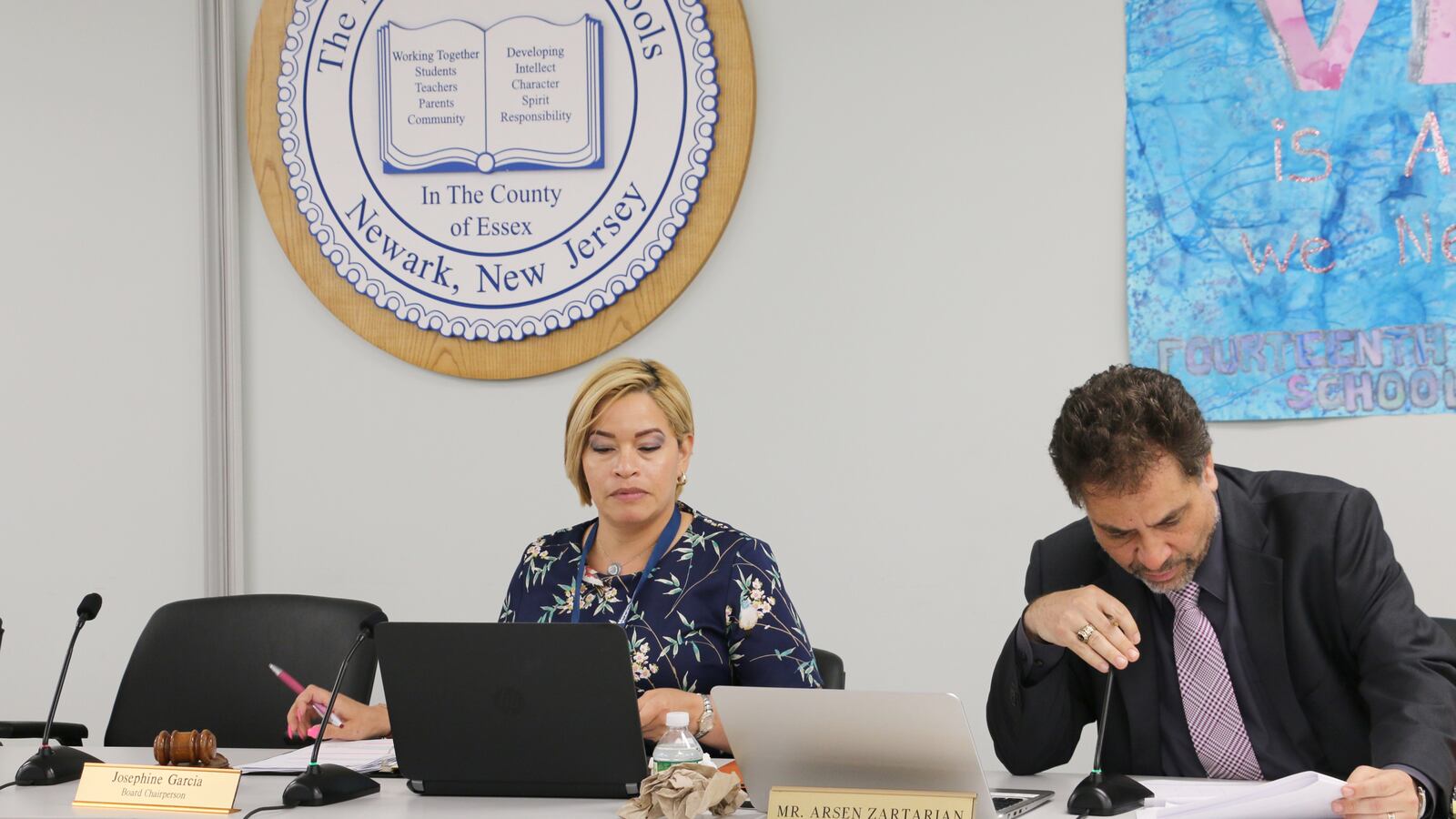Yolanda Johnson wasn’t surprised when she got the warning letter from the Newark Board of Education on Tuesday. She said she’d been expecting it.
“Well, this isn’t the first time,” she said.
But when the board previously had cautioned the mother of a University High School student to follow its rules or risk being banned from future meetings, the district had been under state control.
Now, a school board elected by Newark residents had its attorney, Brenda Liss, issue the warning letters. The letters told Johnson and Denise Cole, parent advocates who are both frequent attendees at board meetings and ran for school board positions this year, that further instances of “disregard for the rules of decorum” at board meetings could result in the women’s ban “any and all future meetings of the Board of Education.”
The tactic has precedent in other cities, as well as in Newark. It also is likely to fall within the board’s legal rights, according to multiple attorneys with expertise in New Jersey law.
Still, it suggests that the board could be having difficulties brooking criticism at a time when its members, and the superintendent they hired, say they want parents to have a greater say than ever in Newark schools. One of the arguments against state control was that it was anti-democratic and robbed Newark residents of the opportunity to have meaningful input in school policy.
At Newark school board meetings, each member of the public who signs up has three minutes to speak. Johnson and Cole often stay at the microphone longer than the allotted time.
Johnson’s letter cited her behavior at both the June 25 and Aug. 20 board meetings, and Cole’s cited the meeting on Aug. 20. At that meeting, Cole railed against the board’s intent to possibly ban people from board meetings while she was at the microphone and while in the audience, halting the meeting for several minutes.
“Please let people finish,” Cole said at the meeting. “You need to respect people who come up here.”
“We are, Ms. Cole,” board president Josephine Garcia responded.
Exceeding their allotted time could be legitimate grounds for meeting attendees to face discipline, attorneys familiar with the law said.
“The board is allowed to hold a meeting that is not disrupted in any way,” said Ronald Chen, a Rutgers law professor who specializes in First Amendment law. “If there’s a uniform time limit, they can be held to that.”
One issue, said Alexander Shalom, a senior attorney at the American Civil Liberties Union-New Jersey, is that taking up additional time could cost other meeting attendees the chance to be heard.
“A public body is allowed to ensure that the public access portion of the meeting is indeed public,” Shalom said. “If their allegation, as it sounds here, is that these folks are interfering with the ability of other members of the public to participate in public comment … it’s certainly possible that they could ban someone at least for a short period of time.”
Chicago began banning disruptive school board meeting attendees in 2013. But the first people issued ban letters under the new policy had all been accused of physical or threatening behavior, not just speaking too long or too strenuously. Similarly, a Vermont father barred from his district’s board meetings was alleged to pose a safety threat. (His ban was ultimately overturned by a federal judge.)
Johnson and Cole attended this week’s board meeting to protest against the board’s letters. The board’s “bullying and intimidation tactics must cease and desist immediately,” they read aloud from a letter they had sent the board. They also noted that New Jersey’s Sunshine Law states that all meetings of public bodies in the state must be open to the public.
“This is not about me taking people’s time,” Cole said in an interview to Chalkbeat. “This is about the board not wanting to take the time to listen to the public’s concern.”
Meeting attendees applauded the two women, but board members did not respond publicly to their protest. Some attendees felt the decision to warn the women sends the message that the board, the first elected by Newark voters since the city’s schools returned to local control after more than 20 years, is uninterested in hearing from some concerned parents.
“I don’t think that the board sees that irony,” said Newark NAACP president Deborah Smith-Gregory, who attended Tuesday’s meeting. “If they did, they would say, we have to do this differently.”
She added: “Banning those two community activists is divisive to our community. That is not what we need as we transition into full local control. We need all hands on deck, whether we agree or not.”


